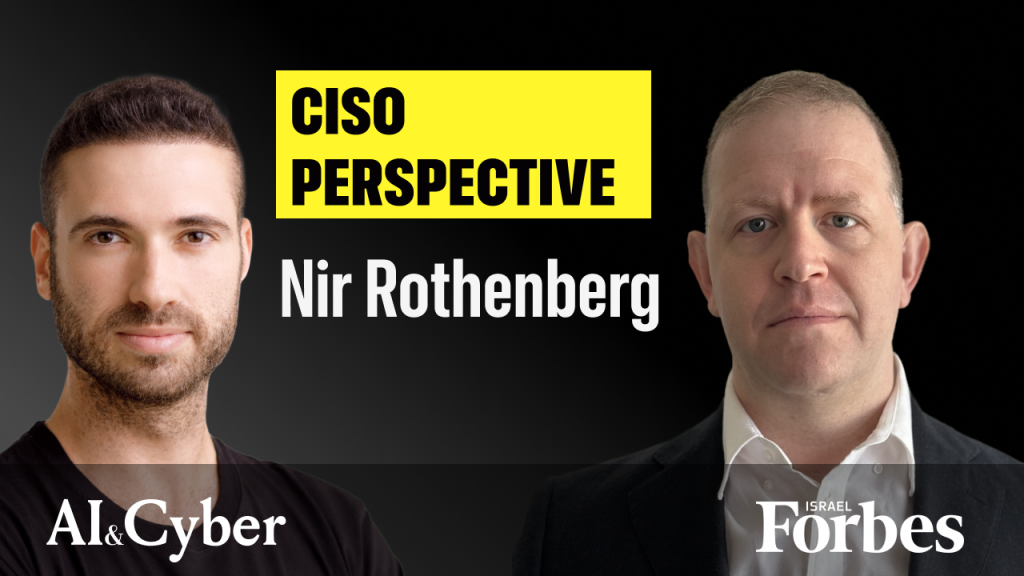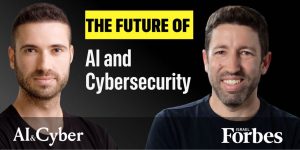We often talk about artificial intelligence as if it’s some godlike force—flawless, unstoppable, and inevitable. But Nir Rothenberg has a simpler take: “AI is just another employee. It makes mistakes, just like humans. The difference is, it does it at scale.”
That perspective set the tone for our conversation. As CIO and CISO at RapydRapyid—and previously Head of Security at NSO—Nir has a rare vantage point. He’s worked with AI both as tool and threat, and he’s seen firsthand what happens when hype outruns strategy.
Like Tsion Gonen recently told me, cybersecurity leaders today aren’t drowning in theory—they’re managing chaos. “People talk about theoretical risks,” Nir said. “But we’ve got enough real ones to deal with already.”
Nir’s approach is grounded in ruthless prioritization. “I’d rather manage five serious risks well than fail at managing 50 minor ones.” It’s a mindset that echoes what Tom Mes called the “impossible role” of the modern CISO: responsible for everything, blamed for anything, and rarely resourced for enough.
That pressure gets sharper in hybrid environments. “We have to stop treating hybrid work as temporary,” Nir said. “Protecting employees wherever they are requires adaptive, AI-powered security.” It’s a challenge I’ve seen up close at Clarity, where identity is fluid, endpoints are unpredictable, and speed is everything.
But for Nir, the tech isn’t the hardest part. The human element is.
“Cybersecurity is about people,” he said. “You have to communicate. You have to collaborate. You have to make decisions—fast—and bring everyone with you.” It’s a philosophy he now applies at Rapyid and shares as an advisor to startups. His message to founders: the best tech won’t matter if you can’t integrate, align, and adapt.
That belief in collaboration runs deep. Nir emphasized that startups play a vital role in pushing innovation forward. “They provide capabilities we can’t always build internally. It’s critical to engage closely with the startup ecosystem.”
This aligns with what I’ve heard from leaders like Dorit Dor at Check Point and Elik Etzion at Elron: cybersecurity must move from reactive to proactive. The defense has to be smarter, faster, and—above all—more human.
As we wrapped up, Nir left me with a challenge: “The real transformation isn’t in the tools. It’s in the culture. In how well we communicate. How fast we decide. How closely we partner.”
The message is clear: AI won’t replace the human in cybersecurity. But it will expose whether your strategy, team, and communication can keep up.
If you get that part right? You won’t just survive—you’ll thrive.
Michael Matias is the CEO and Co-Founder of Clarity, an AI-powered cybersecurity startup backed by venture capital firms including Bessemer Venture Partners and Walden Catalyst. Clarity develops advanced AI technologies protecting organizations from sophisticated phishing attacks and AI-generated social engineering threats, including deepfakes. Before founding Clarity, Matias studied Computer Science with a specialization in AI at Stanford University and led cybersecurity teams in Unit 8200 of the Israel Defense Forces. Forbes Israel recognized him early on, naming him to the exclusive 18Under18 list in 2013 and the Forbes 30Under30 list thereafter. Matias authored the book “Age is Only an Int” and hosts the podcast “20MinuteLeaders.”





